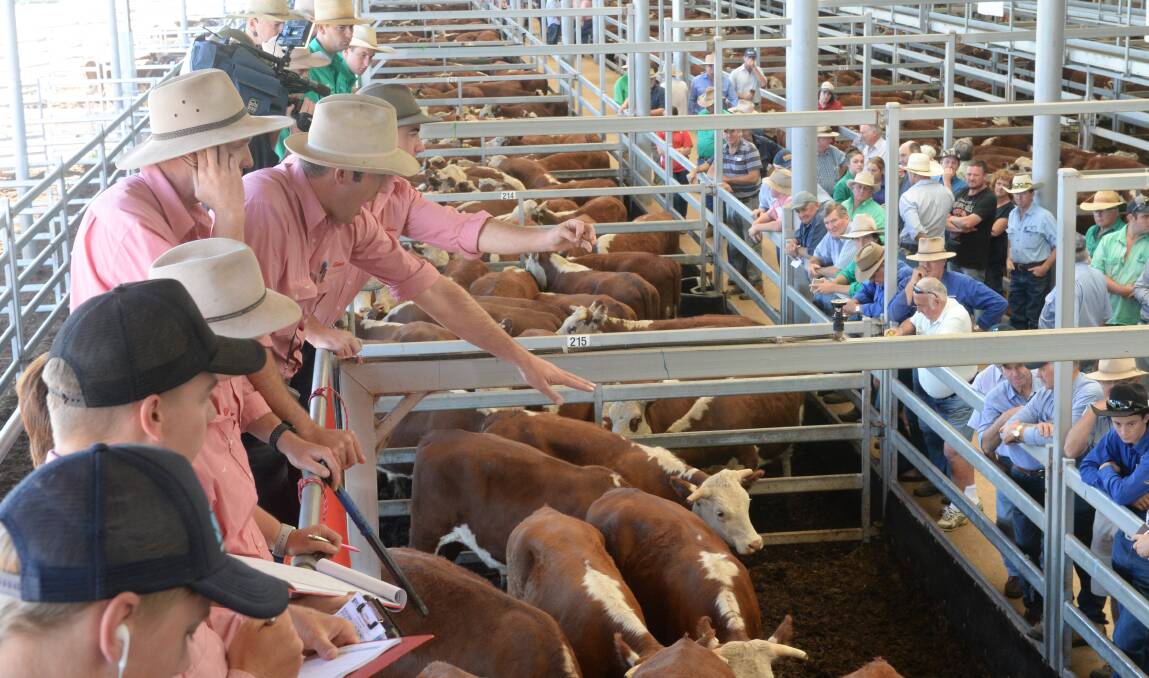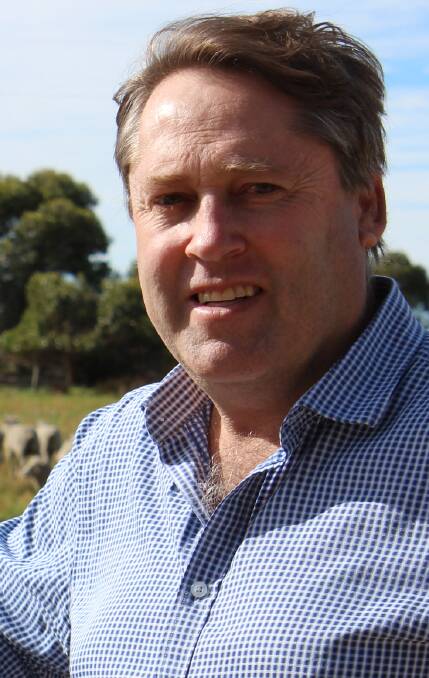
Despite solid returns available from investing in agriculture, Australia’s cashed-up superannuation funds might need tax incentives, or other financial bait, to arouse their serious interest in partnerships with the farm sector.
Subscribe now for unlimited access to all our agricultural news
across the nation
or signup to continue reading
“If it’s not going to happen naturally, maybe a marriage between super funds and Australian agriculture should be arranged,” says agribusiness partner with global law firm, King and Wood Malleson, Heath Lewis.
With the ag sector pleading for fresh capital investment to help bankroll its productivity growth, including much-needed upgrades to infrastructure, technology and export supply chains, Mr Lewis said the lack of interest shown by Australian funds was illogical.
Our $2.8 trillion superannuation sector – one of the richest pension pools in the world – invests less than 0.3 per cent of its reserves in agriculture.
Conversely, overseas pension funds are buying Australian farms and farm services businesses every month.
Lacking experience
Last month a federal government inquiry reported local super funds saw farming as “unappealing and hard to understand” for a variety of reasons, including the lack of detailed performance data available to them and because fund managers lacked experience and empathy with agriculture.
The data challenge was compounded by the super industry’s limited internal capacity to understand what was available and where to find interpretive support.
The question now is what priority will be given by government and politicians to the paucity of investment in agriculture by Australian super funds
- Heath Lewis, King and Wood, Mallesons
The joint parliamentary inquiry panel called for the formation of a superannuation and farm sector investment working group to promote better business processes and structures to attract more investment to agriculture.
It urged an upgrade to the statistical information collated by the Australian Bureau of Agricultural and Resource Economics and Sciences (ABARES) so it better reflected the data detail and timeliness required by investors.
Perth-based Mr Lewis said it was positive to see a bipartisan House of Representatives committee study the industry’s poor appetite for farming, and then unanimously recommend government agencies generate more useful data, as well as other potentially helpful courses of action.
Will Canberra act?
But the inquiry mostly highlighted issues previously aired in the government’s Agriculture White Paper and other reports.
“The question now is what priority will be given by government and politicians to the paucity of investment in agriculture by Australian super funds,” he said.
“I fully understand governments aren’t keen to intervene in markets, but if this issue is as important as this government and the agriculture sector keep saying, I’d imagine some fiscal and tax dials can be moved slightly to motivate the super industry to improve its familiarity and skills in agricultural investment.”

“The people working in these two sectors are from quite different backgrounds, but if there’s extra incentive – for a short period – promoting some collaborative strength, the flow-on benefits to the economy could be significant.”
RELATED READING:
Mr Lewis noted fiscal incentives to pump prime industry development were nothing new to Canberra, although in the current political climate the challenge was to keep politicians “focused on good, long term policy initiatives rather than short term populist distractions”.
However, committee chairman, Rick Wilson, was confident Agriculture Minister David Littleproud would follow through on the recommendations early this year, as would Joel Fitzgibbon if voters supported a Labor government at May’s federal poll.
“As a former rural banker, David has strong empathy with the need for fresh financial liquidity in the ag industry – and this issue did generate considerable interest in Parliament House as well as across the farm sector,” he said.
Farmers willingly talk about their industry to themselves but we’re not necessarily doing a good job about explaining the industry to others.
- Rick Wilson, Member for O'Connor
Mr Wilson, a farmer and the Member for O’Connor, said the committee did not recommend tax incentives, partly because requests which may cost the federal budget more money were “unlikely to get any serious attention at this point”.
He was, however, convinced forming an industry investment working group to promote better business structures and collaboration, and more useful productivity data from ABARES would be valuable to super fund managers and analysts.

“We need to disseminate information and promote agriculture as a sound investment,” he said.
“Farmers willingly talk about their industry to themselves, but we’re not necessarily doing a good job about explaining the industry to others.
“Yes, ag has commodity price fluctuations, weather volatility and even unhelpful exposure to sensitive political issues.
“But the super industry has plenty of capacity to better understand those challenges and realise directing some liquidity to agriculture, rather than tollways, returns good dividends and provides valued funds to help the industry expand.”
Ag results speak volumes
Latest Australian Farmland Index results based on a basket of 51 agricultural investment properties worth $1.03 billion show since March 2015 returns have totalled almost 14 per cent, with income running at 6.18pc and capital appreciation at 7.42pc.
“The result confirms the strength of the ag sector as compared to the equity market in 2018,” said farm index co-ordinator, Frank Delahunty.
The local share market put in its worst yearly performance since 2011 after the key benchmark ASX 200 fell almost 7pc into the red last year, wiping $120 billion off the value of investors' portfolios.
It’s human nature to adopt a more negative response to something if you don’t understand it, especially if it involves stepping outside your comfort zone.
- Frank Delahunty, Australian Farm Index
“Unfortunately, despite its strong performers and the good fundamentals, agriculture suffers from the fact superannuation industry gatekeepers just don’t know the industry,” Mr Delahunty said.
“It’s human nature to adopt a more negative response to something if you don’t understand it, especially if it involves stepping outside your comfort zone.
“I’ve known investment managers to book a business class flight overseas to explore a potential opportunity in London rather than fly to western NSW to learn about what’s in their own backyard.”
- Does this article interest you? Scroll down to the comments section and start the conversation. You only need to sign up once and create a profile in the Disqus comment management system for permanent access to all discussions.


